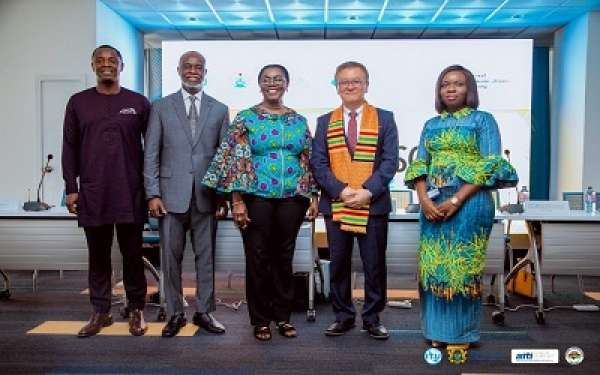Ghana hosts 14th Kaleidoscope Confab on extended reality technology
The conference this year, themed "Extended reality: How to boost quality of experience and interoperability," aims to discuss immersive technologies that combine the real and virtual worlds in order to enhance our quality of life, discover new social and cultural dimensions, and open up new business opportunities.
- Advertisement -
The Ghana-India Kofi Annan Centre of Excellence in ICT (GI-KACE) has hosted the 14TH International Telecommunications Union (ITU) Kaleidoscope Conference in Ghana to improve the quality of experience for Extended Reality (XR).
- Advertisement -
The Kaleidoscope conferences is to identify emerging developments in Information Communication Technologies (ICTs) and particular areas in need of international standards to aid the sustainable development of Extended Reality (XR).
The conference this year, themed “Extended reality: How to boost quality of experience and interoperability,” aims to discuss immersive technologies that combine the real and virtual worlds in order to enhance our quality of life, discover new social and cultural dimensions, and open up new business opportunities.
Director-General for The Ghana-India Kofi Annan Centre of Excellence in ICT (GI-KACE), Dr Collins Yeboah-Afari, said that the conference will trigger conversations around Augmented Reality (AR), Mixed Reality (MR) and Virtual Reality (VR) technologies and how they can support the digital economy as the COVID-19 pandemic is gradually eradicated from the world.
He continued by saying that research has shown that exposing more people to these XR technologies might have a profound impact on a variety of global industries, including healthcare, education, sports, and tourism.
He pointed out that in order to do this, the appropriate technologies must be used, and advanced, and exponential technology capacity building must be carried out.
“This is why we at GI-KACE, as part of our mandate, are concerned about training people in Data Science, Artificial Intelligence (AI), Internet of Things (IoT) among others, while advancing research in these areas,” he explained.
He urged participants to build relationships, establish partnerships, connections in Public and Private Sectors, Academia and Industry to advance XR to boost the quality of experience, as the government champions the Digitalisation Agenda in this country.
The Minister for Communication and Digitalisation (MOCD), Ursula Owusu Ekufful noted that this year’s theme, which focuses on developing a field of study called the Extended Reality (XR), has ramifications for global standardisation.
She stated that the sessions would allow for the exchange of expert knowledge and empirical results regarding enhancing the quality of experience in technology to further the nation’s socioeconomic advancements.
She indicated that because reports have shown that virtual and augmented reality may enhance the world economy by 1.5 trillion dollars by 2030, they have a great deal of potential and can have an impact on the economy.
“What used to be fiction before is now increasingly becoming reality and not a movie. It is about how we can use emerging technologies to enhance our socioeconomic advances today” she explained.
She noted that even in highly developed cultures, immersive technologies still have a niche market and are not as widely used as they can be, even by the most isolated people, who could also have the greatest need for them.
Ursula Owusu mentioned that there exists serious challenges that threaten to leave some 3.57 billion people behind and unconnected.
“These barriers including the lack of awareness, the need for advanced capabilities, digital skills and capacity development, limited access to hardware and software, affordability and connectivity are hurdles on our part to harnessing the full potential of extended reality, particularly in less privileged societies,” she concluded.
By Christabel Oboshie ANNAN & El-ham Ameenu SIRINA || The Finder, Accra
- Advertisement -
- Advertisement -


